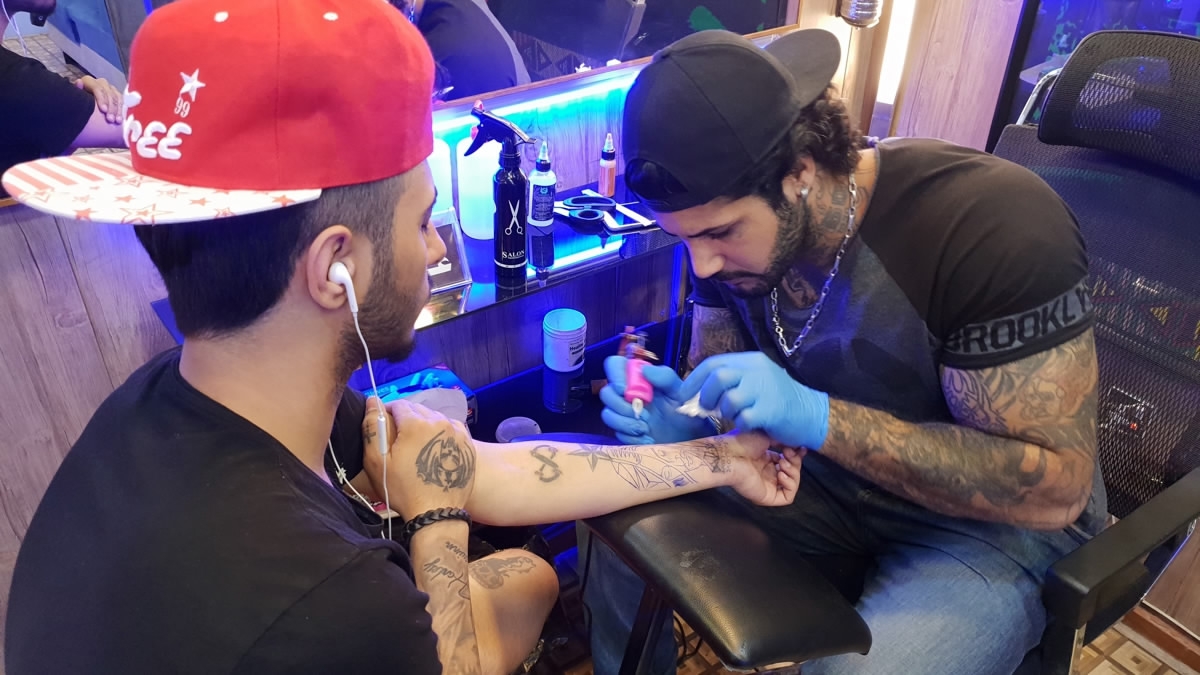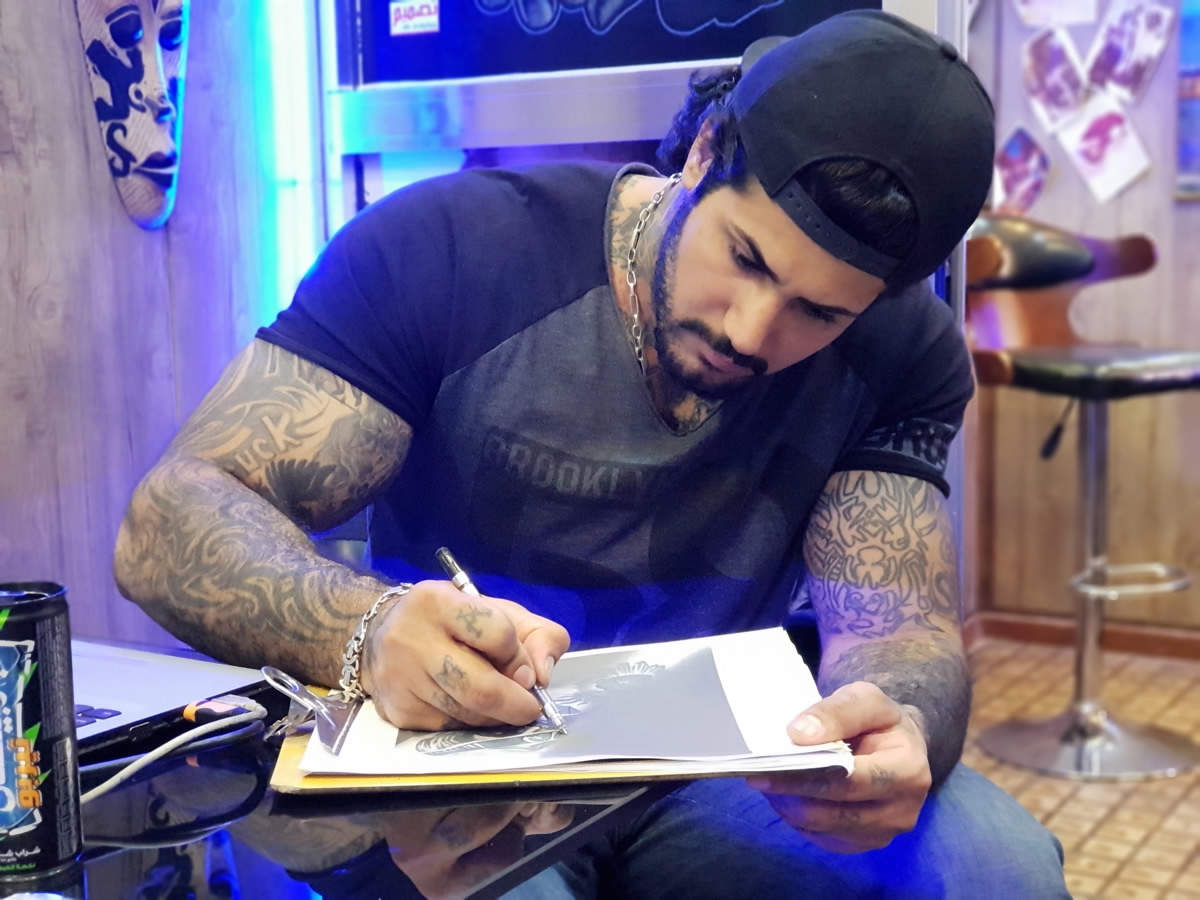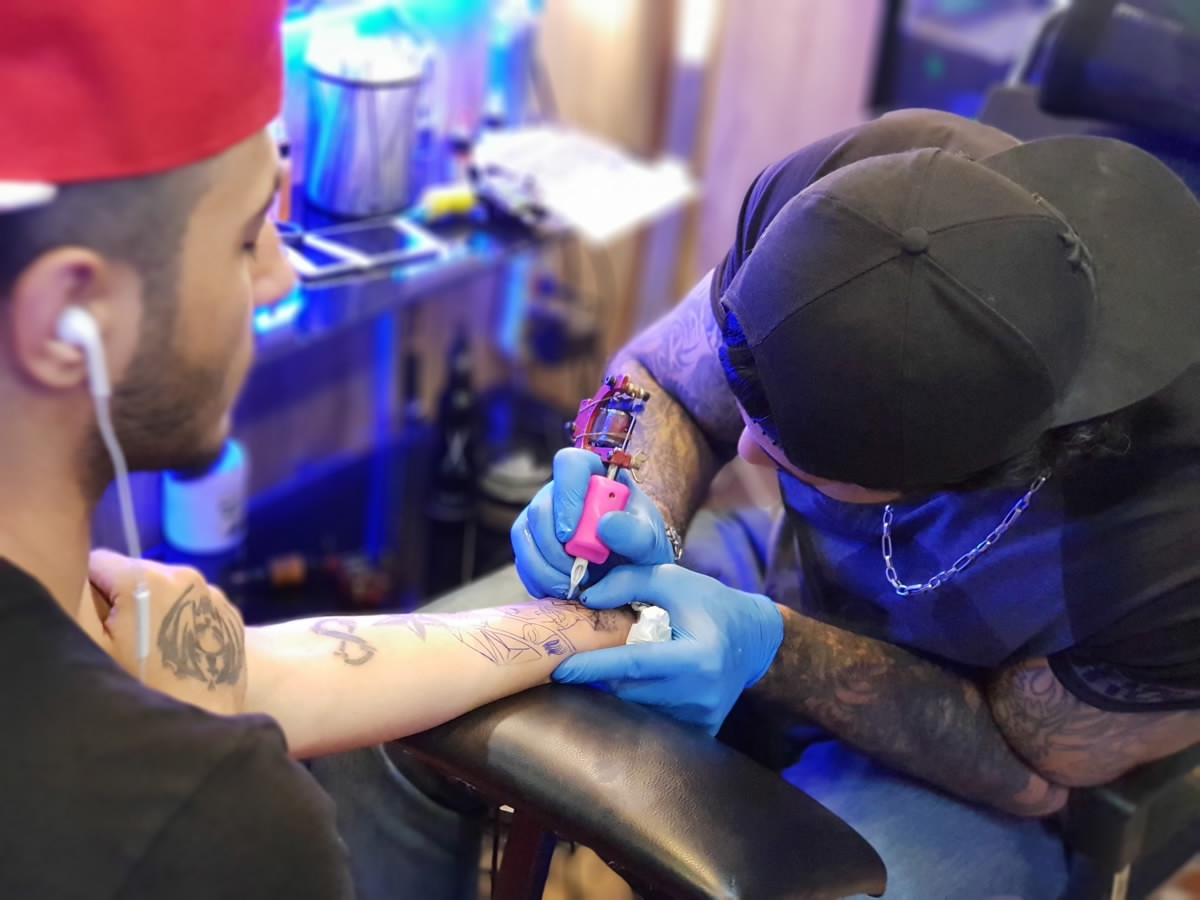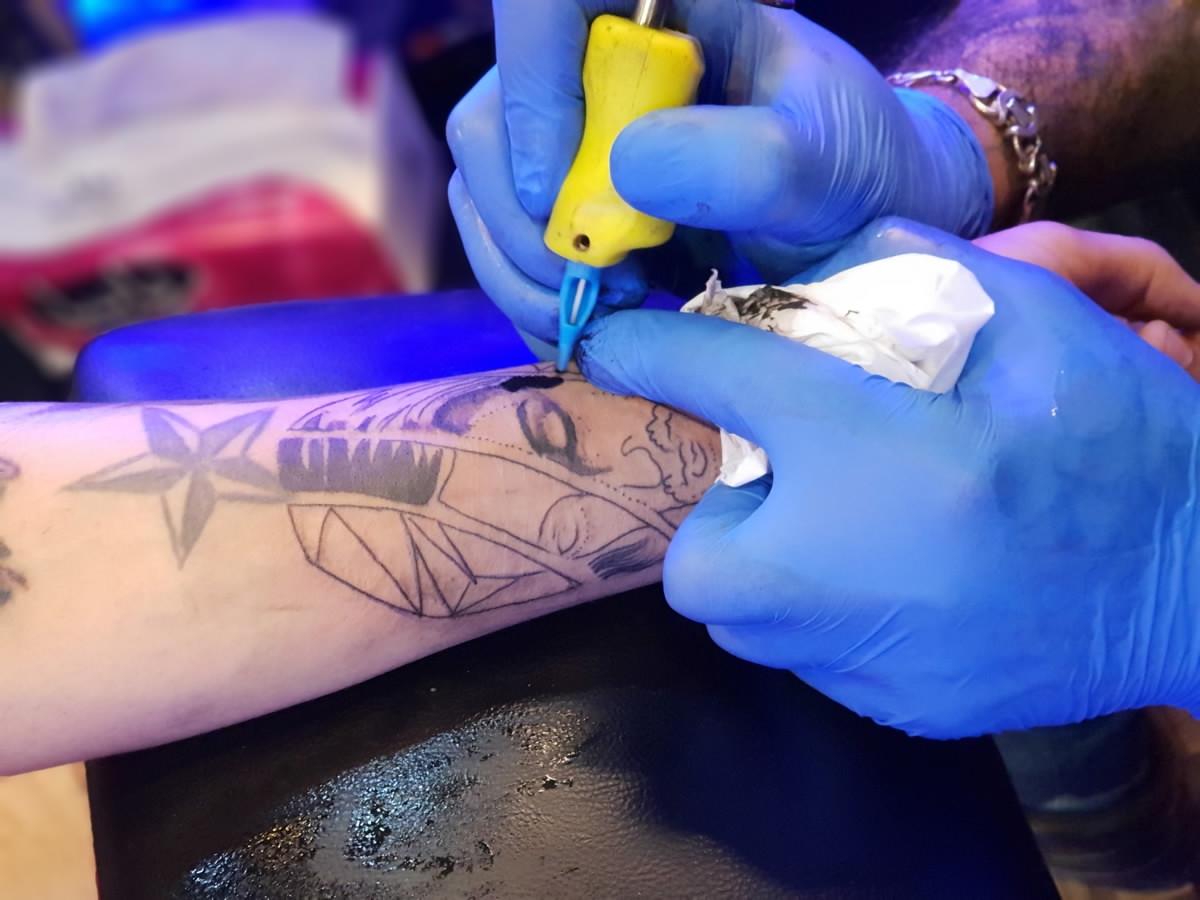
Culture
16:45, 21-Mar-2018
Reporter's Diary: Tattoo revolution in the capital of Iraq
By Tadek Markowski

"Look, it's Khal Drogo."
It was this simple, slightly cheeky, though rather accurate observation of a mountain of a man who was casually watching us as we recorded the comings and goings of shoppers in the Mansour district of Baghdad, that opened our eyes to a popular subculture we hitherto didn't know existed in Iraq.
Aside from being a dead ringer for Jason Momoa, who played the Dothraki King in "The Game of Thrones," Alaa Abas is a walking advertisement for his local tattoo studio.
Only after our Iraqi fixer Laith had approached him with a cautious "shlonak" (How are you?) and was met with a broad grin, did we deem it prudent to strike up a conversation that ended with, "Can we come and film you working?"

Alaa Abas draws. /CGTN Photo
Alaa Abas draws. /CGTN Photo
Over the burring of his ink gun, we learned 29-year-old Alaa started doing tattoos when he was just 17, and that while the body art craze might have plateaued in the Western world, it's just getting started in Iraq. It would seem Iraqi youths dig the ink, though it's still a practice that doesn’t sit well with many of the older generation here. Nothing new there then.
"Before when I'd go out with my tattoos showing on my body, I wasn't very comfortable. Wherever I'd go people told me haram, haram, haram (forbidden). That's all I'd hear from them. Now there's been some kind of development," says Alaa.
"In the past few years, people have started to get tattoos on their bodies. Before it was like only 20 percent of people who did it. Now it's up to something like 70 percent or 80 percent."

Alaa Abas tattoos on a customer's arm. /CGTN Photo
Alaa Abas tattoos on a customer's arm. /CGTN Photo
Alaa explained his journey into body art was given a major push by the US-led military campaign to oust Saddam Hussein.
"The coalition forces came and I struck up a lot of friendships – like 50 to 60 friends who gave me the idea I was a painter. So I started to work in this field and succeeded. Mostly we’d see them in the streets," said Alaa.
After Saddam was toppled in 2003, more Western culture found its way into Iraq via a plethora of international TV channels and a newfound freedom for Iraqis to travel, which led to a wider acceptance of tattoos across the society.

Alaa Abas tattoos on a customer's arm. /CGTN Photo
Alaa Abas tattoos on a customer's arm. /CGTN Photo
"The change came from outside of course, from Europe. Then it comes to the Arab countries. For example young people are watching wrestling or football players, and they want to copy them, that includes tattoos. Most of the youths here are attracted to the wrestlers or sportsmen," Alaa commented.
Alaa reliably informed us that the most popular themes with his growing clientele are skulls and intricate patterns, though Jesus (Isa in Arabic) was the subject during our brief visit.
Before we left his studio, we assured Alaa we'd be back in touch in the unlikely event that the Dothraki King was bought back from the dead (for a second time) and there was opening of the Game of Thrones set for a Khal Drogo body double – for a suitable finder's fee of course.
(Video and photos by Jack Barton)
6301km

SITEMAP
Copyright © 2018 CGTN. Beijing ICP prepared NO.16065310-3
Copyright © 2018 CGTN. Beijing ICP prepared NO.16065310-3